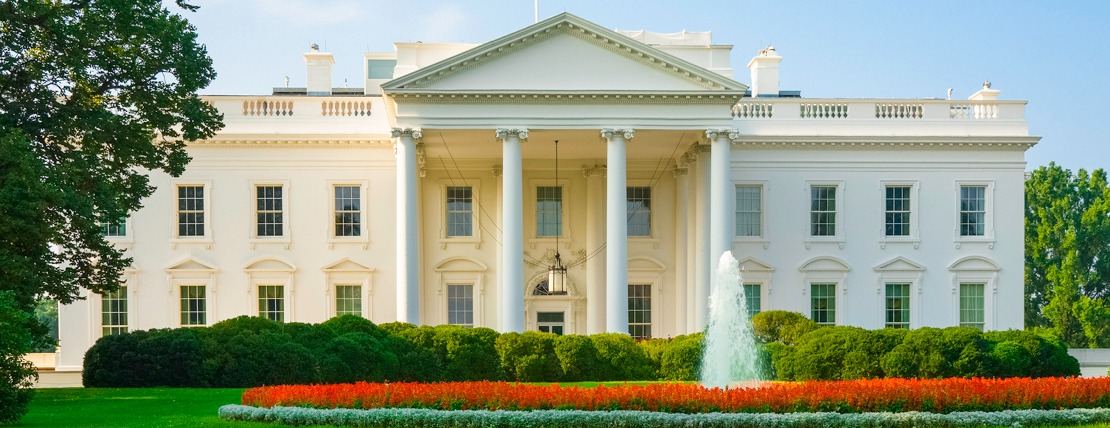For WorldatWork Members
For Everyone
- A Look Ahead: Exploring the Impact of the November 2024 U.S. Election for Total Rewards Professionals, on-demand webinar
- Federal Judge Kills OT Final Rule and its Salary Threshold Increases, Workspan Daily article
- NLRB Seeks to Prosecute Employers Over ‘Stay-or-Pay’ Provisions, Workspan Daily article
Each Presidential election in the United States brings with it the chance of large-scale change by a new administration. In President-elect Donald Trump’s case, the administration isn’t technically new, but it is only the second time in American history that a former President has won back the White House after a one-term absence — so that adds a somewhat different twist to the process. The bottom line as we head into 2025: Prepare for a shakeup.
WorldatWork’s recent webinar, “A Look Ahead: Exploring the Impact of the November 2024 U.S. Election for Total Rewards Professionals,” examined what leaders and practitioners can expect over the next four years. Alex MacDonald, a shareholder at Littler Mendelson P.C. and a member of the employment law firm’s Workplace Policy Institute (WPI), provided insights on a host of related regulatory and legislative issues.
A Republican Majority and Agency Appointments
During the webinar, MacDonald called out the Republican trifecta — majority control of the White House, Senate and House of Representatives — as a turning point.
“They will be able to do things legislatively that they might not have been able to do otherwise,” he told the audience.
Republicans would still need to “peel away” some Democrats to counter a filibuster and achieve any real, groundbreaking legislation. But as in past administrations, the White House also will likely seek to install policy through budget reconciliation, which involves making substantive changes via the funding process.
According to MacDonald, one important procedural matter prior to the Jan. 20, 2025, inauguration is the selection of nominees to lead federal agencies.
“In our space, that means nominees to the National Labor Relations Board, the Equal Employment Opportunity Commission and the Department of Labor,” he said. “The President should have an easier time getting his personnel choices installed in those agencies, which means he also will have a smoother time making policy on the administrative side.”
As of publication of this article:
- Andrea Lucas is viewed as the front-runner for chair of the Equal Employment Opportunity Commission (EEOC). Lucas is currently the only Republican on the five-member panel.
- Lori Chavez-DeRemer was nominated by Trump on Nov. 25 as Secretary of Labor under the Department of Labor (DOL).
- Leadership of the National Labor Relations Board (NLRB) is up in the air (more on that below).
A Labor Law Stalemate?
MacDonald said Littler’s WPI doesn’t expect any major labor and employment legislation to come out of Congress in the near term, mainly because it would require Democrats’ support to pass any related laws.
“Frankly, it’s very hard to get major labor or employment legislation passed in any Congress,” he said. “We don’t expect that to be much different from what’s coming in January.”
MacDonald noted that some of the labor-related areas pending right now are in litigation.
2024 Overtime Rule … R.I.P.
The overtime rule proposed in April 2024 by the DOL under the Biden administration had some of the biggest potential ramifications for employers. The rule included a salary threshold increase in July 2024, plus another in January 2025, along with automatic “escalator” provisions kicking in afterward.
Federal Judge Sean Jordan on Nov. 15 issued a nationwide injunction against the final rule, invoking language from the Administrative Procedure Act in his decision. The judge also opined that the DOL rule violated the plain text of the Fair Labor Standards Act (FLSA).
“Judge Jordan said the rule was invalid because it effectively made salaries the determinative factor for a vast swath of people,” MacDonald said, adding that statute verbiage on employment in a “bona fide administrative, executive or professional capacity” suggests the determinative factor almost always should be what the person does — not what the person earns.
With the Jordan decision, the salary threshold reverts to the preexisting standard, which was put into play in 2019 under the first Trump administration.
“If not for the change in leadership, you would expect the Biden administration to appeal that kind of an order,” MacDonald said. But given the election outcome, “the considerations are different.”
Independent Contractor Rule
Another area under federal litigation is the DOL’s 2024 independent contractor final rule.
That rule established a six-factor test to determine whether a worker should be classified as an independent contractor or an employee under the FLSA, essentially making it more difficult for employers to classify workers as independent contractors by emphasizing the “economic realities” of the working relationship between the worker and the employer. This rule seeks to replace a previous 2021 rule that was considered more lenient toward classifying workers as independent contractors.
“If the court … enjoins the rule, then we’re in the exact same position we were with the overtime rule,” MacDonald said.
If the rule is struck down, the fallback would be a rule the first Trump administration published in early 2020.
Shakeup at the NLRB?
MacDonald said another important initiative for Republicans and the new administration is blocking current NLRB chair Lauren McFerran’s reappointment for another five-year term. The board largely sets labor law rules through decisions in individual cases, which are prosecuted by the agency’s presidentially appointed general counsel.
McFerran, whose current term ends in January, has been awaiting a floor vote since a Senate committee signed off on her nomination in August. If the full Senate reconfirms McFerran, Democratic board members would retain the majority into 2026. Democrats currently hold a 3-1 majority, with one seat (previously held by Republican John Ring) vacant.
“It’s very possible that we roll into the new administration with two vacancies [McFerran’s seat plus the vacated seat], which would mean the new president could install two new members and flip the board as early as January,” MacDonald said. “That could have pretty dramatic policy implications for some of the things the board has done over the last four years.”
Trump also will likely shake up the board by firing NLRB general counsel Jennifer Abruzzo and her top lieutenant, Peter Sung Ohr, as soon as Inauguration Day. President Joe Biden created that precedent by terminating Trump-era general counsel Peter Robb in 2020.
MacDonald said that upon attaining a Republican majority, the White House is highly likely to roll back several Biden-era NLRB decisions, including ones related to:
- Employer free speech in union elections
- Third-party access to employer property
- Expansion of available damages
- Confidentiality/non-disparagement clauses
- Workplace conduct/civility rules
- Employee handbooks
- “Card check” organizing
He said the new DOL under a Republican-appointed secretary may also explore other HR-related initiatives, including:
- “Reverse discrimination” and DEI
- LGBTQ+ protections under Bostock v. Clayton County
- Religious liberty in the workplace
Additional Activity
Regarding the hot-button immigration issue, MacDonald said employers are eager to know how the administration change will impact them, including in areas such as fee increases, revisions to visa requirements, prevailing wage changes, merit-based visa applications, green card changes and more.
“We do expect some policy changes like everywhere else. The general direction is toward tighter restrictions, more background checks and less emphasis on loosening the visa rules,” he said.
MacDonald also advised to be aware of what is occurring outside of the federal level.
“There is much change ahead, and most of the changes right now are very focused on the impact of the Presidential election and, secondarily, the House and the Senate,” MacDonald said. “But a lot is happening in the states, too, between ballot initiatives and state houses flipping.”
In summation, he said, the next four years will be active, to say the least.
Editor’s Note: Additional Content
For more information and resources related to this article, see the pages below, which offer quick access to all WorldatWork content on these topics:








